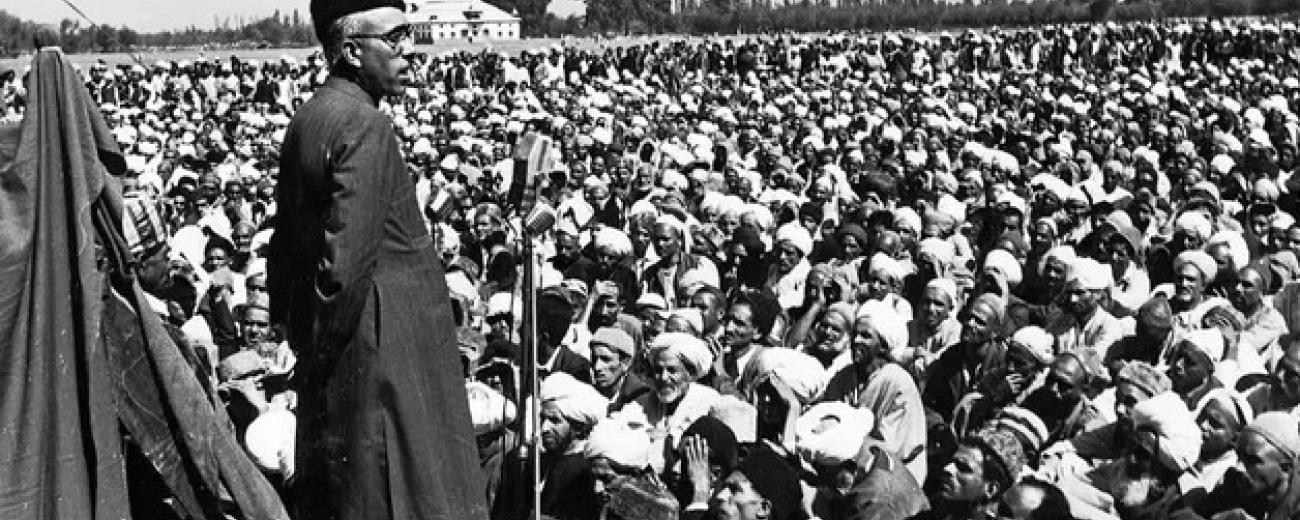
Kashmir without History: Sheikh Abdullah and the Partition of India

Key information
- Date
- Time
-
5:00 pm to 7:00 pm
- Venue
- Senate House
- Room
- S209
About this event
Prior to 1947, Sheikh Abdullah, Kashmir’s leading thinker-politician and the arch-theorist of Indian federalism, produced a scalar conception of nationality which rested, in part, on a shared past.
But the Partition of India, and the first India-Pakistan war over his Kashmiri homeland, forced Abdullah to recalibrate his ideas for a changed context. In a perverse acknowledgement of Pakistan’s anti-historical triumph, Abdullah realised that South Asians, compulsorily freed from the protracted narrative of India’s common history, had to arrange their political unions on civic or ideological lines.
Thus the accent of Abdullah’s political arguments changed. As he contemplated Kashmiri futures from both within and outside the Indian Union, he relied on chiefly contemporary commitments to: universal citizenship, secular inclusion, wealth redistribution and socialist development, and the right to (and indeed limitations of) regional self-determination in the context of a global Cold War.
This paper is taken from a forthcoming collection of essays that argues for the centrality of Kashmir to political thought in mid-twentieth-century South Asia. It will, therefore, begin with a brief description of that larger argument.
Speaker
- Amar Sohal
Contact
Image: Sheikh Abdullah addresses a crowd


